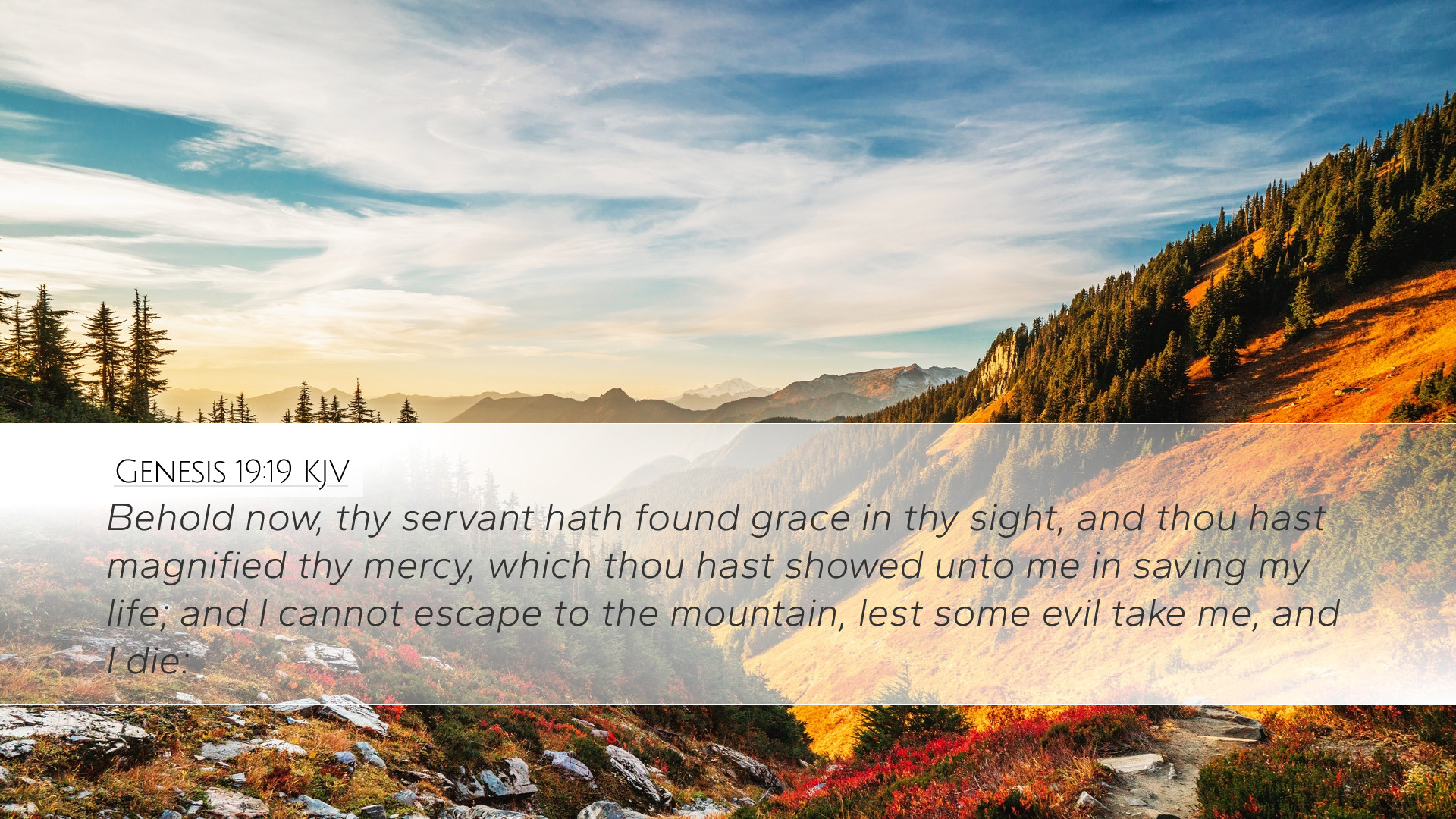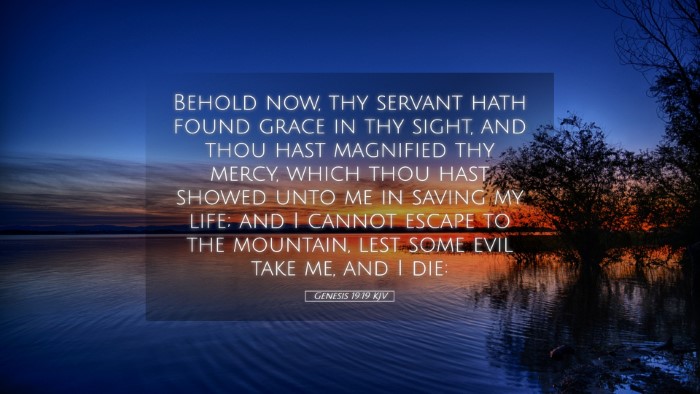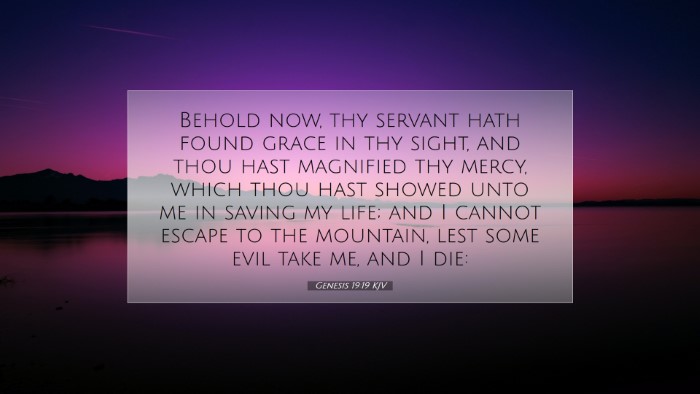Commentary on Genesis 19:19
Bible Verse: "Behold now, thy servant hath found grace in thy sight, and thou hast magnified thy mercy, which thou hast shewed unto me in saving my life; and I cannot escape to the mountain, lest some evil take me, and I die." (Genesis 19:19, KJV)
Contextual Overview
The passage of Genesis 19 recounts the harrowing escape of Lot from the impending destruction of Sodom and Gomorrah. Lot’s plea to the angels underscores his desperation and recognition of God’s mercy. This moment exemplifies critical themes of grace, mercy, and the human condition in the face of divine judgment.
Theological Insights
1. Acknowledgment of Grace
As Lot expresses, "thy servant hath found grace in thy sight," we see an essential theme of the Scripture—divine favor is not deserved; it is a gift from God. Matthew Henry emphasizes this point, stating that God’s grace is given freely and is often unasked for. Lot’s humble acknowledgment serves as a reminder to believers of the perpetual need for God’s grace in their lives.
2. The Magnitude of Mercy
Henry explains that God’s mercy is immeasurable. Lot recognizes the enormity of what God has done for him—saving his life from judgment upon Sodom and Gomorrah. This expression of thanksgiving can serve as an instructive model for the faithful, highlighting the importance of recognizing and vocalizing God's merciful acts in their lives. Albert Barnes further annotates that this recognition aids in cultivating a spirit of gratitude, fostering a deeper relationship with the divine.
3. The Fear of Destruction
Lot’s fear of escaping to the mountains emphasizes the human tendency to distrust God’s protection. Lot remarks, "I cannot escape to the mountain, lest some evil take me." Adam Clarke illustrates that Lot’s concern reflects his understanding of the dangers that lay ahead, capturing the essence of human weakness amidst circumstances that invoke fear. The plea reveals a tension between divine promise and human apprehension.
Literary Devices and Structure
In analyzing the text, one notices the use of direct address and personal pronouns, which makes Lot’s plea intimate and relatable. The emotional appeal showcases not only distress but also reliance on God’s character as a merciful protector. Matthew Henry notes the importance of personal engagement in prayers, stating that a heartfelt acknowledgment of God’s character is vital in moments of crisis.
Practical Applications for Believers
- Embrace Grace: Believers are encouraged to recognize their state of grace, understanding that their salvation and daily sustenance come from God's unmerited favor.
- Express Gratitude: Regularly acknowledge and articulate thanks for God’s mercies in personal and communal settings can foster a deeper faith.
- Combat Fear with Faith: In times of uncertainty, believers must be reminded of God's promises and ensure their fears do not override their faith.
Conclusion
Genesis 19:19 is a profound verse that captures the essence of human reliance on divine mercy. Lot’s humble plea and acknowledgment of grace challenge modern believers to seek a deeper understanding of their relationship with God. Through the lens of various commentaries, we gain valuable insights that resonate with the core of Christian faith—God’s unwavering mercy, the importance of gratitude, and the necessity of faith in overcoming fear.


